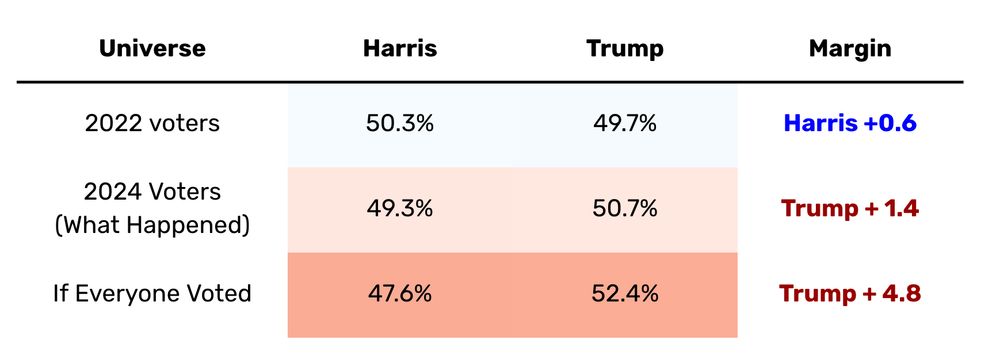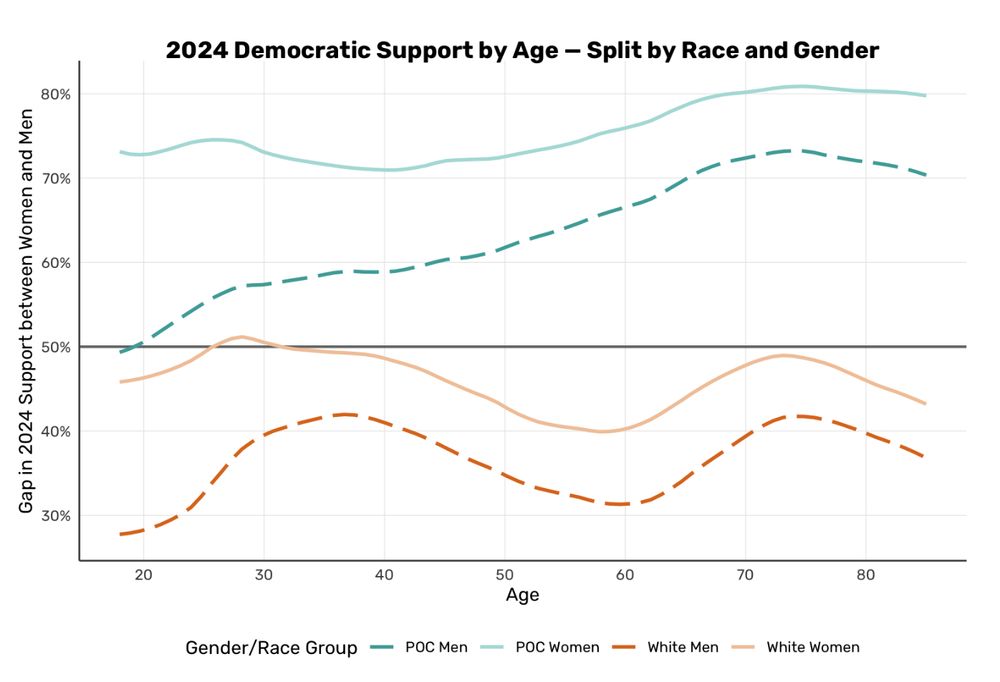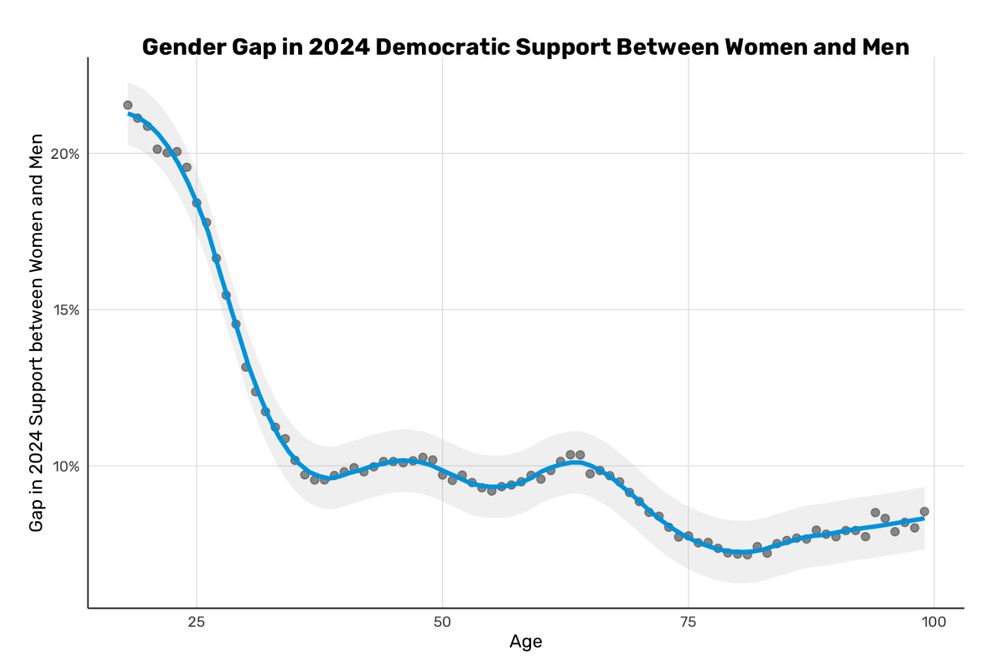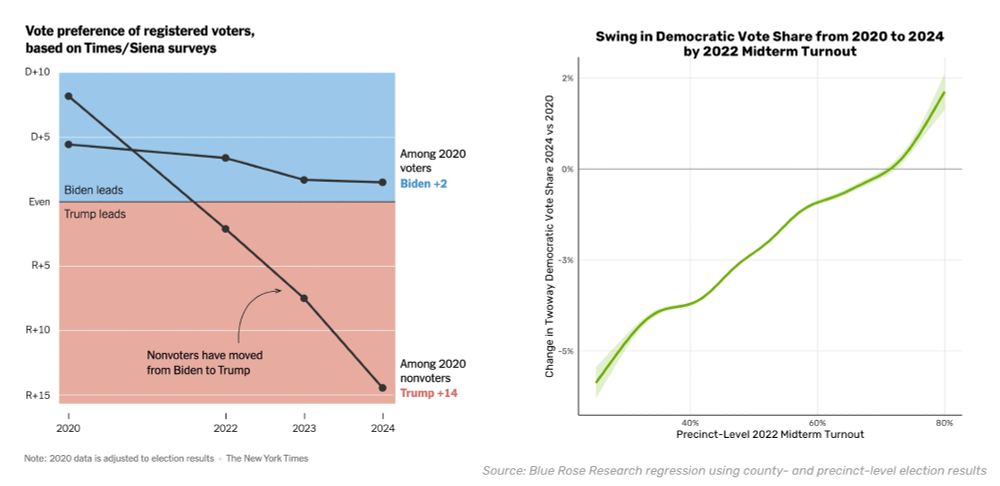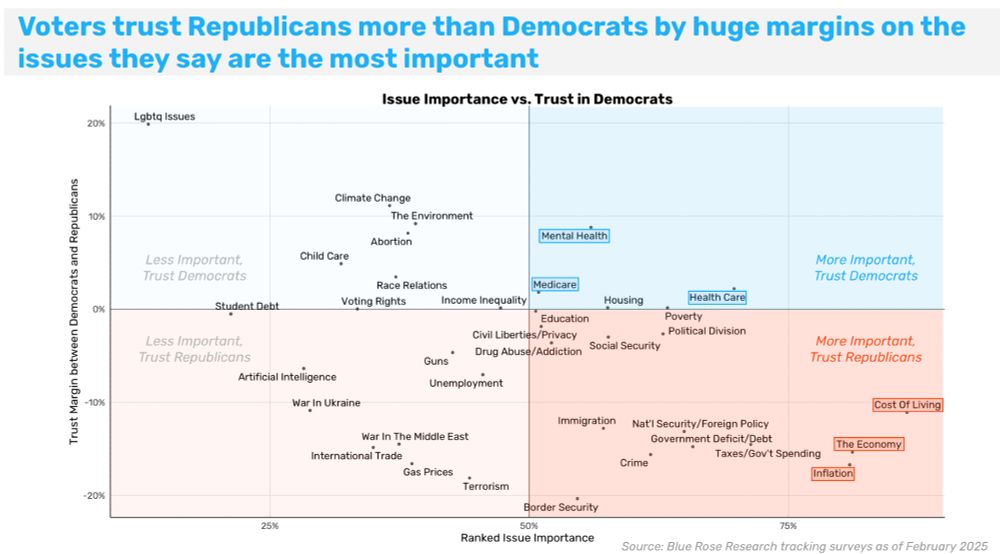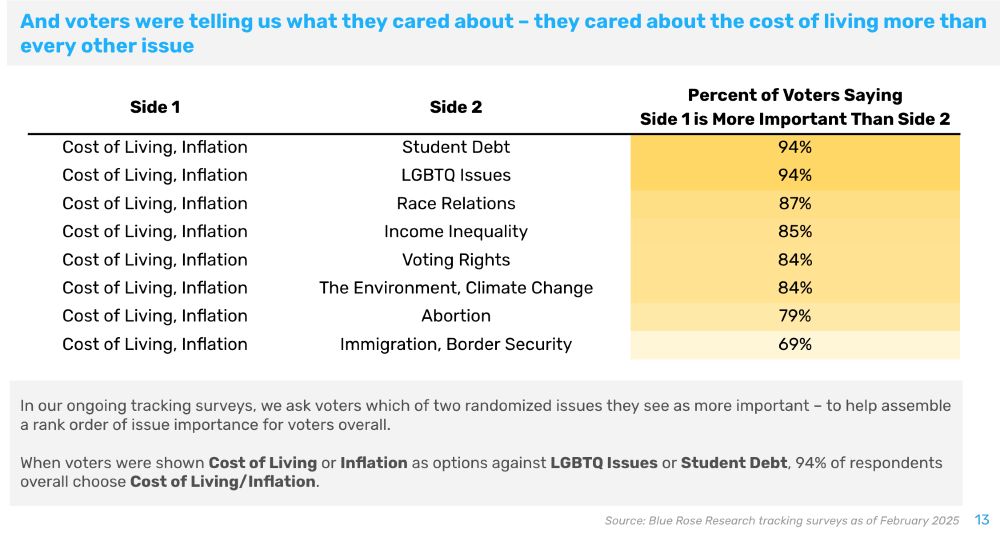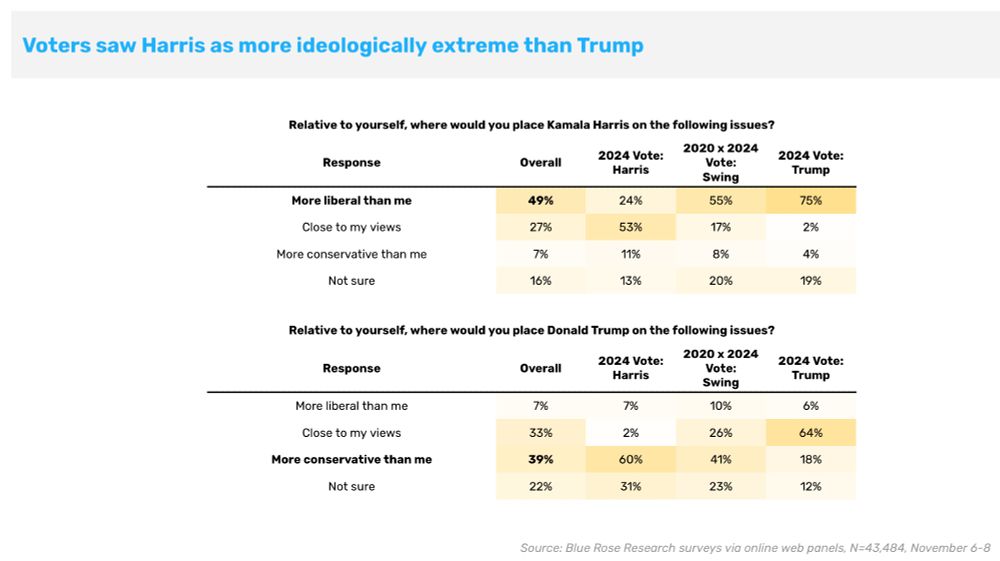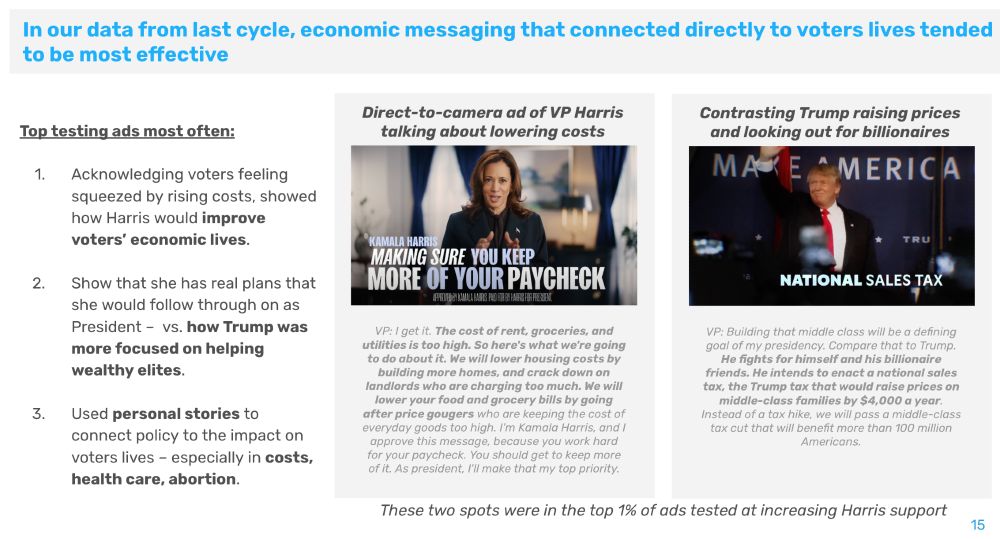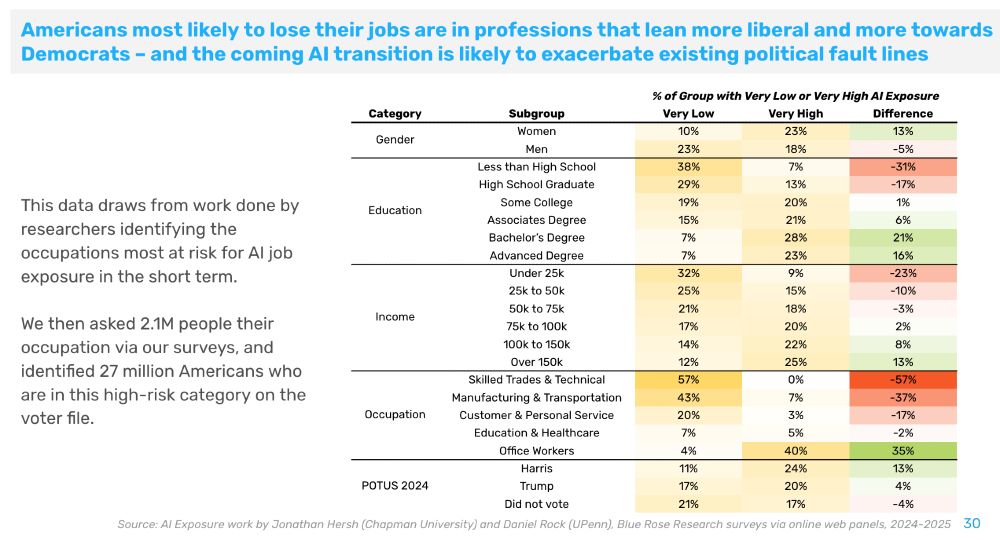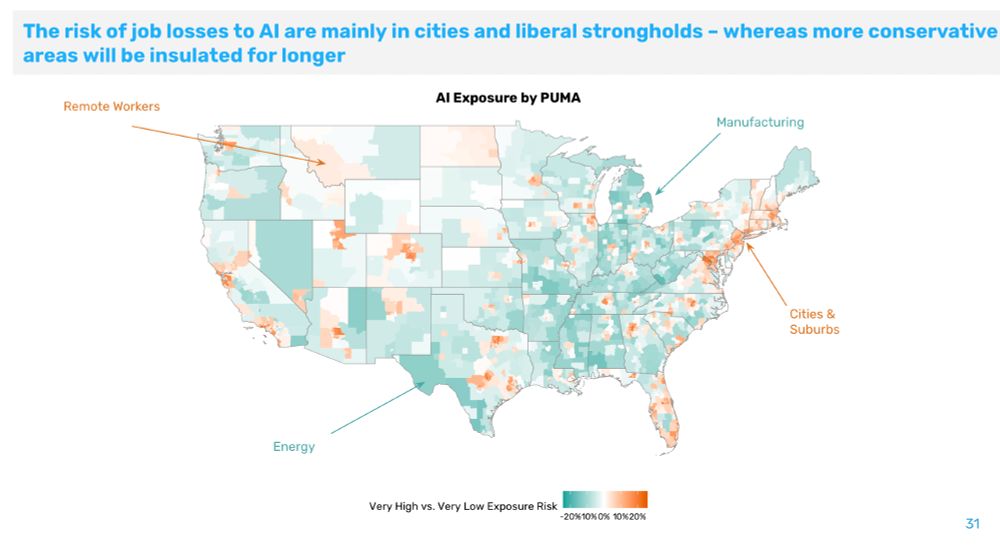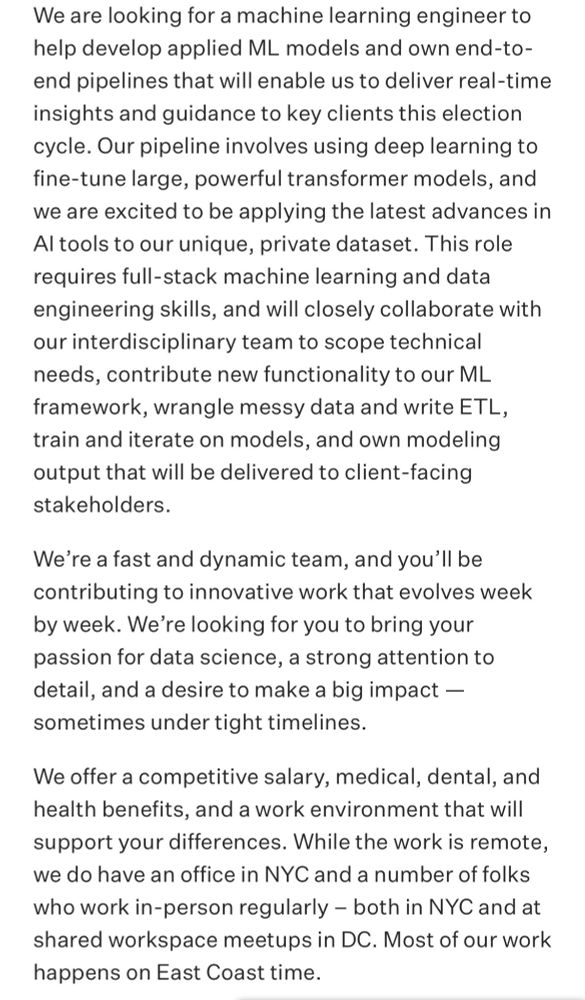Excited to join @ezraklein to talk through what happened in 2024.
There's a turnout story this cycle, but not the one we're used to talking about. With less-engaged and less-likely voters becoming more Republican, a larger turnout meant a more GOP electorate.
In November, we saw a swing similar in magnitude to the realignment we saw in 2016: Hispanic, Asian, young voters, and politically disengaged voters swung towards Trump. Trump also made substantial gains among naturalized citizens (about 10% of the electorate).
A major shift we saw this cycle is that young people have gone from being one of the most progressive generations to one of the most conservative.
Republicans won 18 year old white men, white women, and men of color, and doubled their support with men under 25.
Another massive shift Democrats saw in 2024 is that people who don't follow the news closely went from being slightly left in 2020 to voting for Trump by double digits.
On the flipside, Democrats actually increased their margins with high-information voters from 2020.
Trump was just as unpopular going into November as he was in 2020.
What changed this cycle is Democrats' massive favorability decline and Republicans trust advantages on the issues that mattered most to voters this cycle (the economy/inflation/cost of living).
This cycle, Trump did a good job of convincing voters he was a moderate: in our polling after the election 49% of swing voters said Harris was more liberal than they were vs 39% of voters who said Trump was more conservative than them (similar to what we saw in 2016)
Now what?
As Democrats try to shape the story against Trump, the most effective critiques of Trump are actually pretty similar to the ways Democrats ran against Mitt Romney: he’s giving huge tax breaks to the wealthy and trying to cut programs like Social Security and Medicare.
Some good news: messages on economic populism that acknowledge high costs of living and our policies to bring down prices are very persuasive at getting people to support Democrats.
But we can't just focus on winning the last war - AI capabilities increasing exponentially but will impact America unevenly in ways that risk accelerating our existing cultural divides - Democrats to be proactive
Find the full 2024 analysis/contact us here:
data.blueroseresearch.org/2024retroAlso we’re hiring for an AI-focused machine learning engineer role at Blue Rose!
This is a great chance to be at the forefront of using cutting edge machine learning techniques to resist Donald Trump!
t.co/dwE3D3mJ4FWhat's the source of the AI exposure map?
Step 1: two economists I know did a bunch of work to estimate AI exposure (fraction of hours "impacted" by AI) on ONET-code level
Step 2: Collect ONET-code level occupation for ~1 million survey takers
Step 3: Break exposure into quintiles and model it out to everyone on the voter file (MRP-like)
The economists will point out that exposure!=job loss because everything depends on elasticities that are impossible to know ahead of time - which is a subset I think of the broader inability to be confident about anything in this topic.
But I think it's still a useful exercise!
Obviously nobody can really know how AI is going to play out - but I wanted to spell out a scenario that I am worried about that I think is fairly plausible using the best data I could
